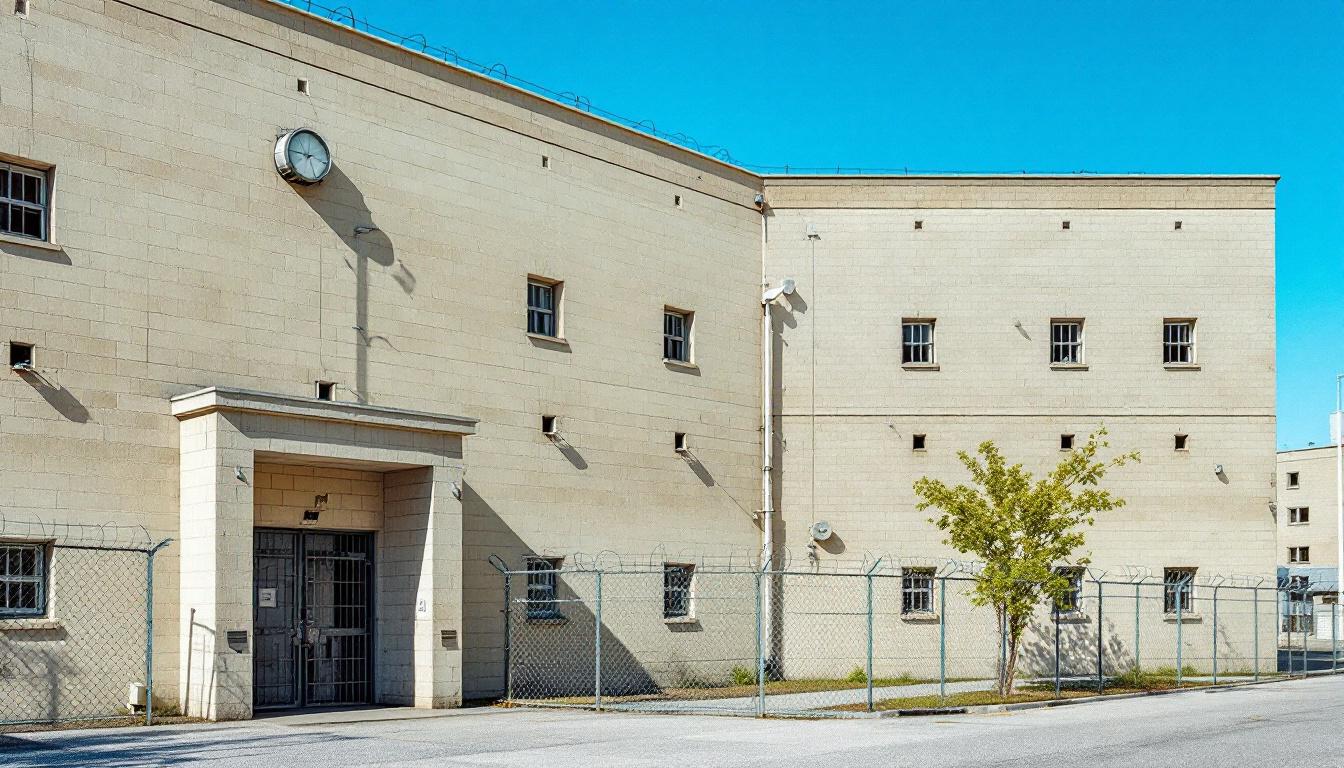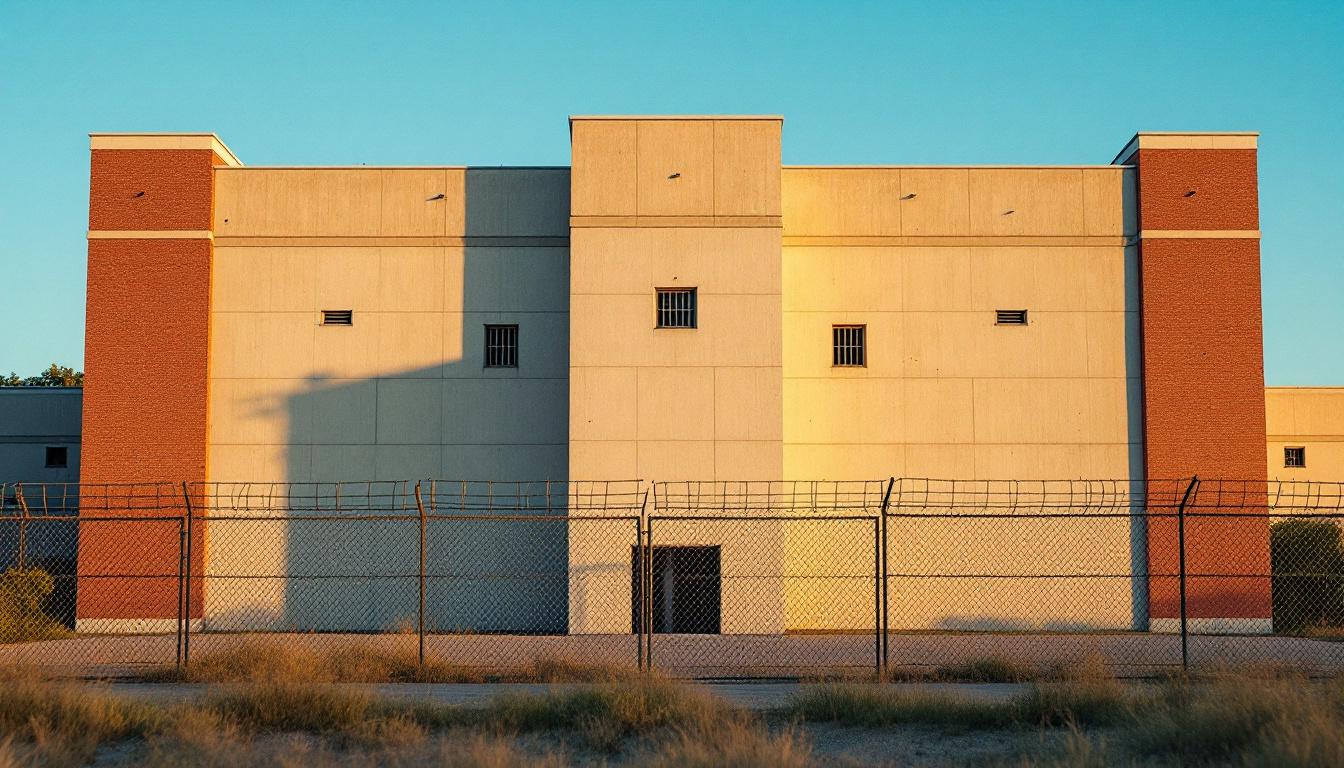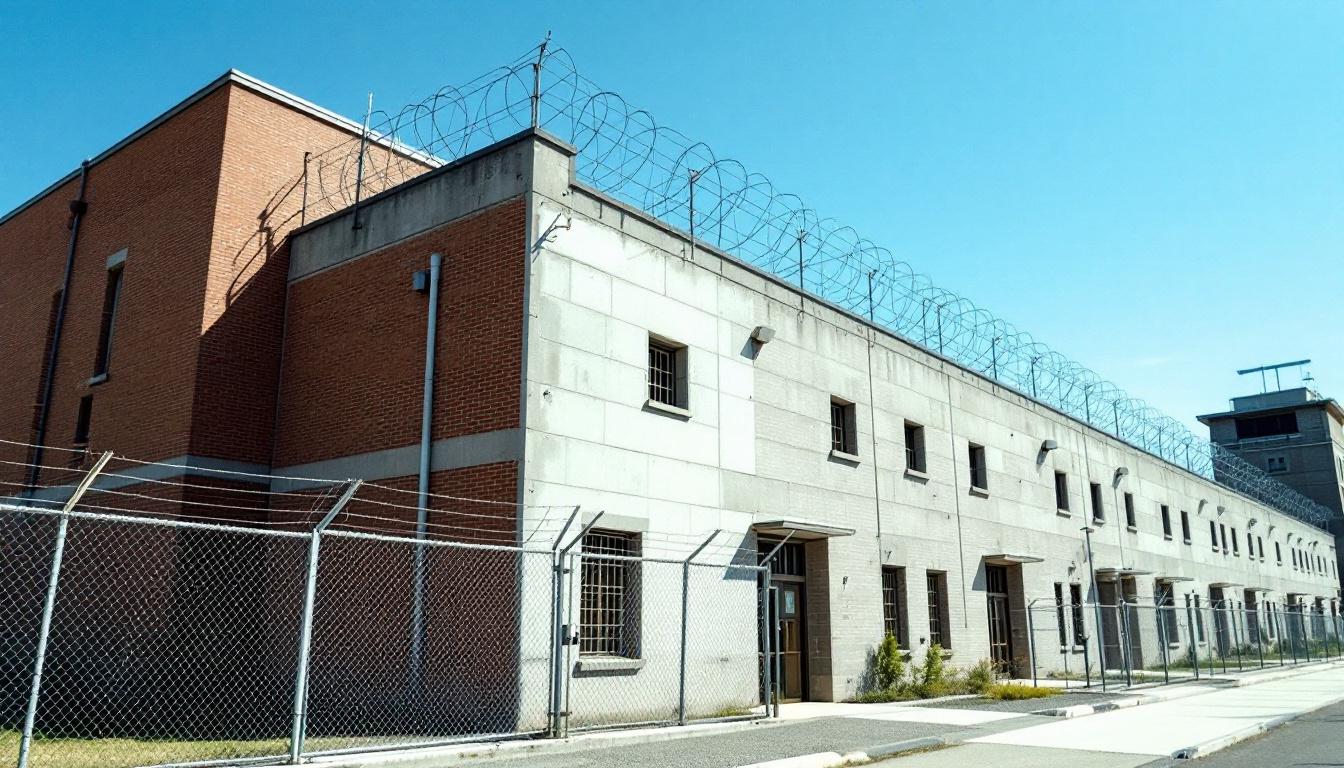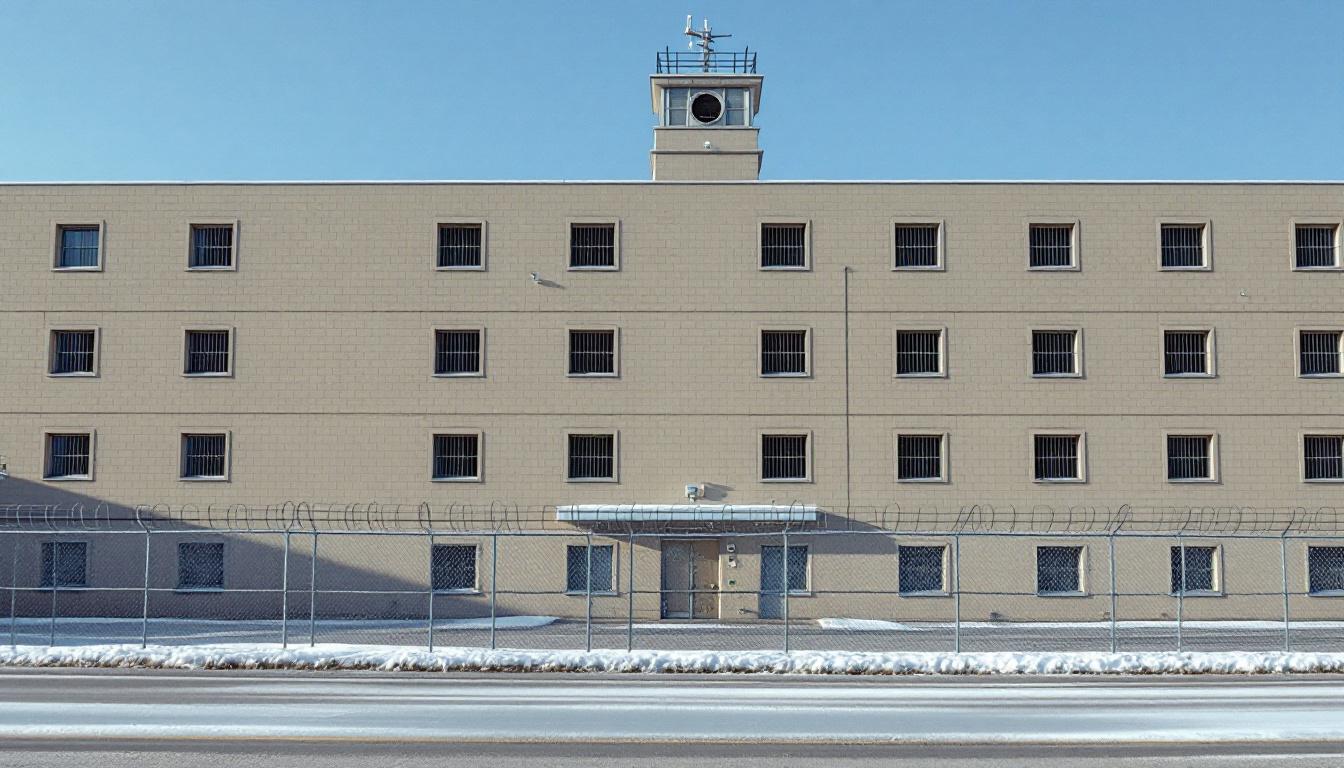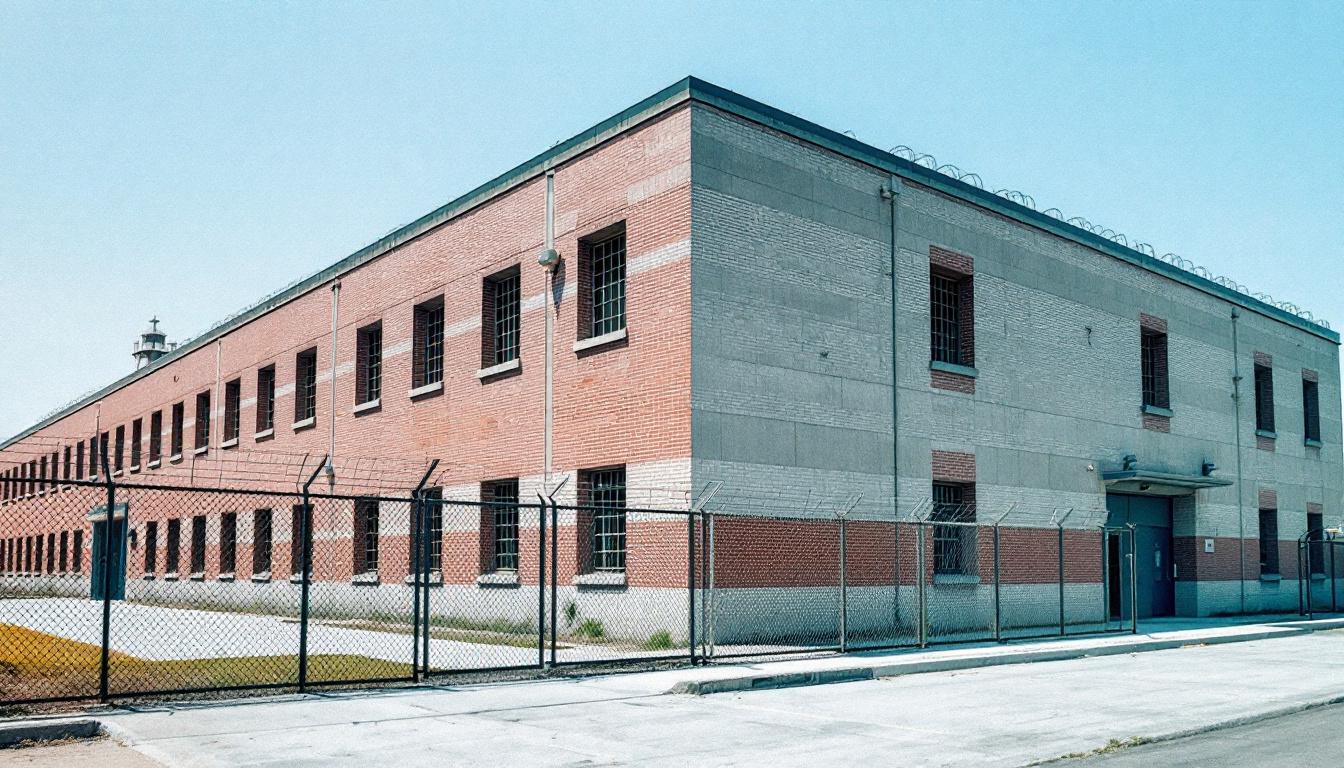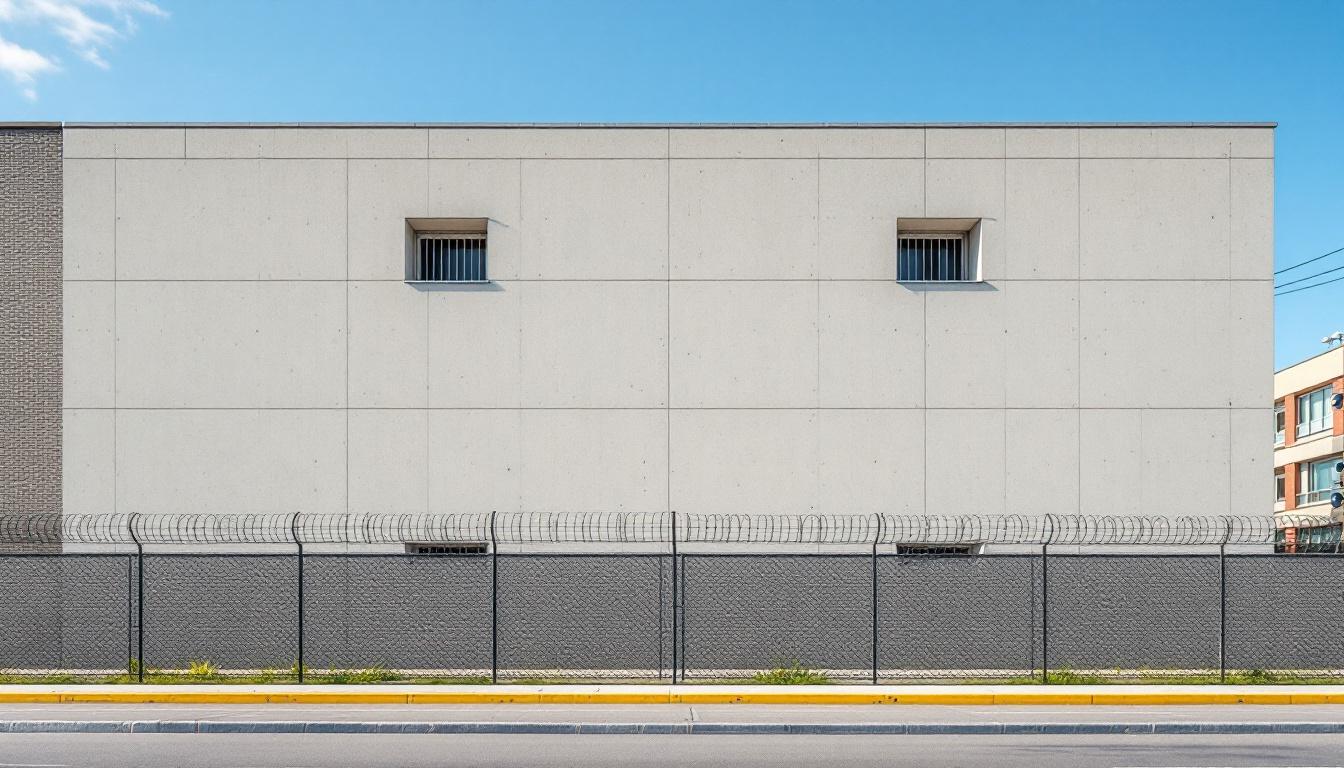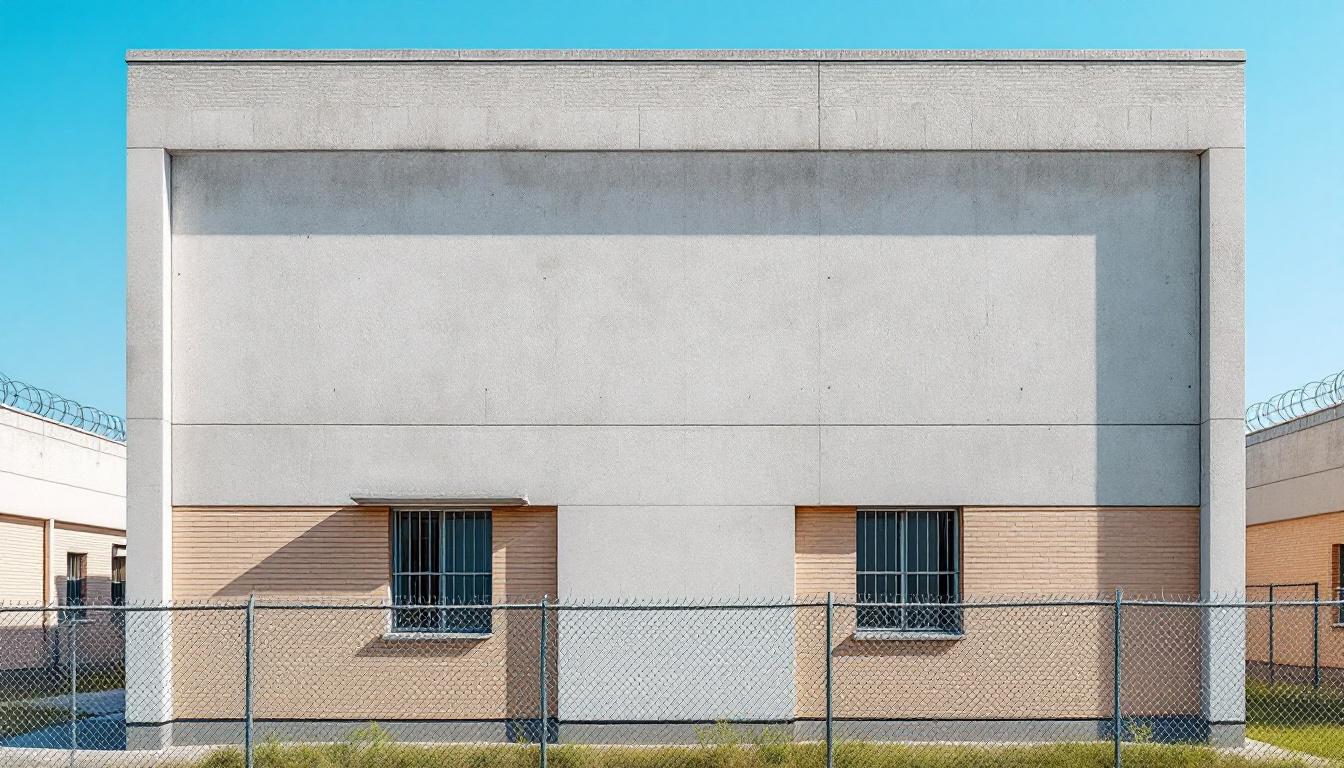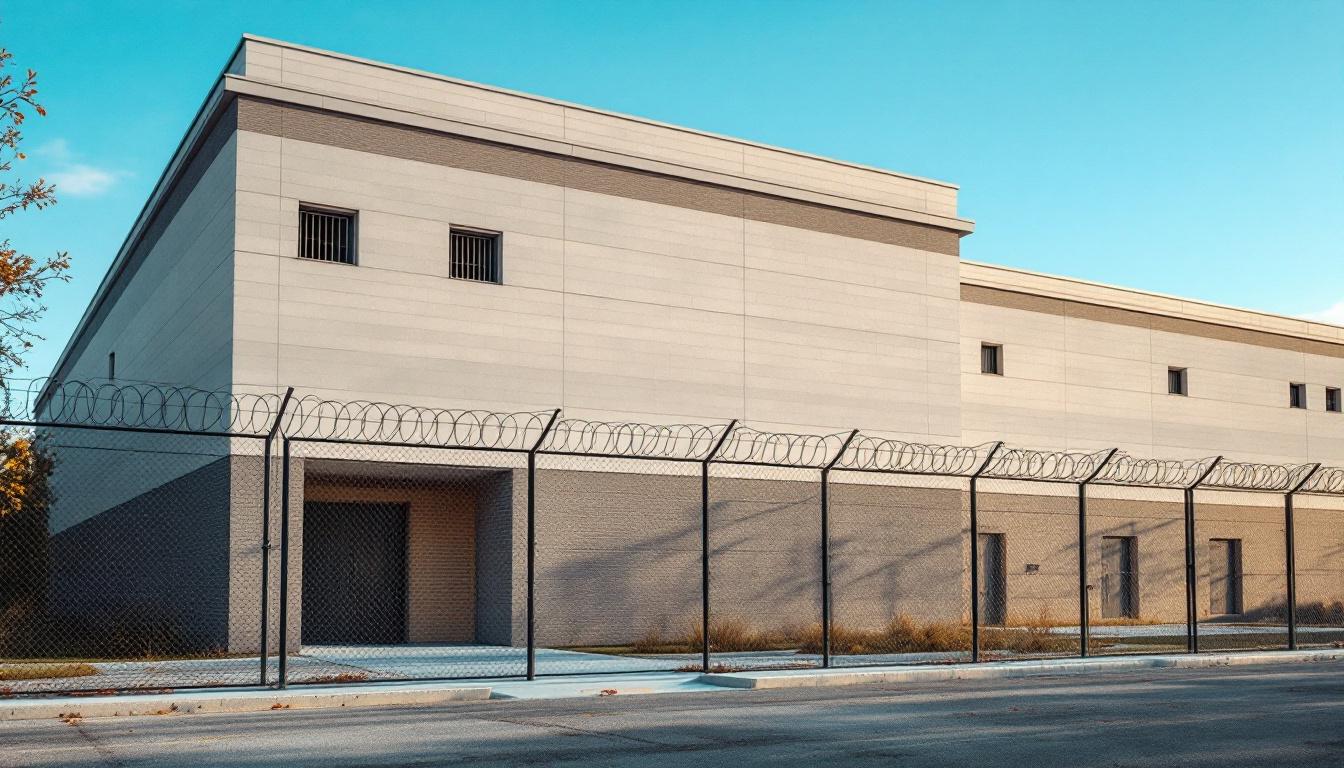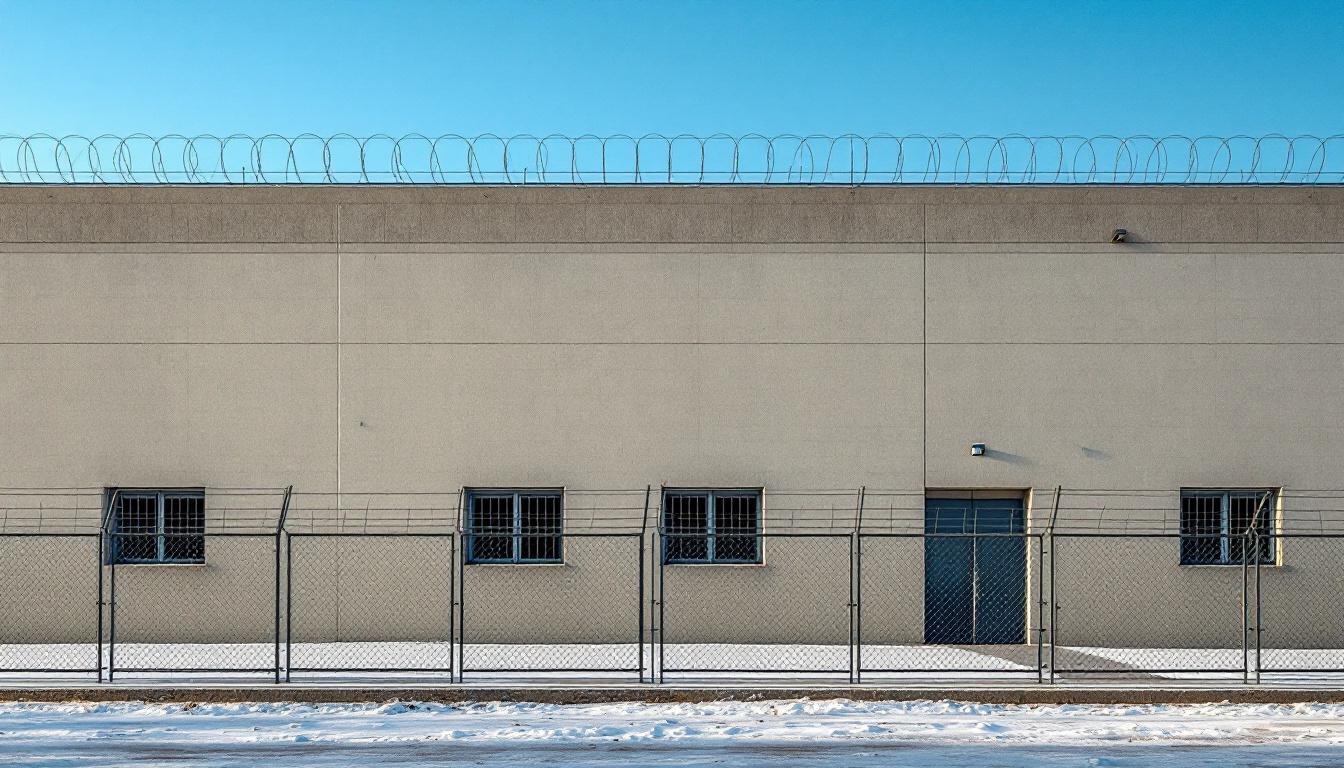
Quick Navigation
How to contact an inmate at Henderson Detention Center
This comprehensive guide will walk you through how to connect with an inmate at Henderson Detention Center. Follow the steps below to find an inmate and send letters and photos:
- Search for the inmate using our search tool below
- Create your account or log in to Penmate
- Write your message (up to 6,000 characters)
- Send instantly - inmates receive printed copies daily
Find an Inmate
Search for an inmate to start communicating today
Tip: You can search by first name, last name, or inmate ID number
To contact a person at Henderson Detention Center start by searching for the person on the official facility website. Perform a search by following these steps:
- Step 1: Enter their first name and last name into the search form and click "Search"
- Step 2: Locate their inmate record
- Step 3: Write down their Inmate ID and any housing information provided
Important! Be sure to enter the person's full name. Nicknames should not be used.
How to Send Messages to Inmates

You can use your phone or computer to send emails, letters, and photos to an inmate. Messages are sent electronically to inmate tablets or kiosks at the facility. If you would like to send a message, start by searching for an inmate at Henderson Detention Center.
Sending Photos and Postcards

A great way to send love and support to a loved one at Henderson Detention Center is to send photos and postcards. It only takes a few minutes to send photos from your phone and it makes a huge difference. You can also mail postcards with words of support and inspiration, or design your own postcard for special moments like birthdays and holidays.
Important! Be sure not to send any explicit photos or they may not be approved by the facility. You can also use a photo printing app like Penmate to make sure your photos are printed at the correct size (4x6 or 3x5) and are mailed according to the rules and regulations of Henderson Detention Center.
Frequently asked questions about Henderson Detention Center
-
How long does it take to deliver a message?
If you're sending an email message your letter is usually delivered within 24-48 hours. For messages sent via mail you should expect delivery within 3-7 days. All messages will need be approved by Henderson Detention Center.
-
How much does it cost to send a message to Henderson Detention Center?
You can send a message free using your phone or mail a message via USPS for the price of a $0.60 stamp and envelope. You can also purchase credits or e-stamps from services starting at $1.99.
-
What services can I use to contact an inmate at Henderson Detention Center?
Penmate
You can use Penmate to send letters and photos to an inmate from your phone. It's an easy way to stay in touch during your loved one's incarceration. Use the inmate locator to find an inmate's location and contact information, then you can send messages within a few minutes.
Securus messaging
Securus may be another option for communicating with an inmate at Henderson Detention Center. You can create a friends and family account and purchase credits to send messages. All messages will be reviewed and must be approved by the facility.
JPay
Some county jails and state prisons may support sending messages with JPay. You must register an account with the system, find your loved one, and purchase stamps to send messages. For some locations you can also attach photos.
Smart Jail Mail
You may also check if Smart Jail Mail is available at Henderson Detention Center. Smart Jail Mail is operated by Smart Communications and has contracted with some state and county jails. After purchasing credits, your messages and photos are sent to the facility, printed out, and then handed out to your loved one.
-
What is the mailing address of Henderson Detention Center?
Mailing address:
Henderson Detention Center
18 E Basic Rd
Henderson, NV 89015
Phone: (702) 267-5245Business hours:
- Monday: 8:00 AM – 5:00 PM
- Tuesday: 8:00 AM – 5:00 PM
- Wednesday: 8:00 AM – 5:00 PM
- Thursday: 8:00 AM – 5:00 PM
- Friday: 8:00 AM – 5:00 PM
- Saturday: 8:00 AM – 5:00 PM
- Sunday: 8:00 AM – 5:00 PM
-
What are the visiting hours at Henderson Detention Center?
Visiting hours at Henderson Detention Center vary by housing unit and security level. Generally, visits are scheduled on weekends and holidays, with some facilities offering weekday visits. Contact the facility directly at (702) 267-5245 or check their website for the current visiting schedule. Visits typically last 30-60 minutes and must be scheduled in advance.
-
What items are prohibited when sending mail to Henderson Detention Center?
Prohibited items typically include: cash, personal checks, stamps, stickers, glitter, glue, tape, staples, paperclips, polaroid photos, musical or blank greeting cards, hardcover books, magazines with staples, and any items containing metal or electronics. Only send letters on plain white paper with blue or black ink. Photos must be printed on regular photo paper (no Polaroids). Always check with Henderson Detention Center for their specific mail policies.
-
How do I send money to an inmate at Henderson Detention Center?
You can send money to an inmate at Henderson Detention Center through several methods: 1) Online using JPay, Access Corrections, or the facility's approved vendor, 2) Money orders mailed directly to the facility with the inmate's name and ID number, 3) Kiosks located in the facility lobby, or 4) Over the phone using a credit or debit card. Fees vary by method, typically ranging from $2.95 to $11.95 per transaction.
-
Can I schedule a video visit with an inmate at Henderson Detention Center?
Many facilities now offer video visitation as an alternative to in-person visits. At Henderson Detention Center, video visits may be available through services like Penmate, Securus Video Connect, GTL, or ICSolutions. Video visits typically cost $10-20 for 20-30 minutes and must be scheduled in advance. You'll need a computer or smartphone with a camera and reliable internet connection. Contact the facility for their specific video visitation policies and approved vendors.
-
What identification do I need to visit an inmate at Henderson Detention Center?
All visitors must present valid government-issued photo identification such as a driver's license, state ID, passport, or military ID. Minors must be accompanied by a parent or legal guardian who can provide the minor's birth certificate. Some facilities require visitors to be on the inmate's approved visitation list, which may require a background check. Contact Henderson Detention Center for specific ID requirements and visitor approval procedures.
-
How can I find out an inmate's release date?
To find an inmate's release date at Henderson Detention Center, you can: 1) Use the online inmate search tool if available, 2) Call the facility's records department, 3) Contact the inmate's case manager or counselor, or 4) Have the inmate provide this information during a call or visit. For privacy reasons, some facilities only release this information to immediate family members.
Facility Overview
Contact Information
Henderson Detention Center18 E Basic Rd
Henderson, NV 89015
Phone: (702) 267-5245
Official Website

About Henderson Detention Center
Community-focused rehabilitation programs and comprehensive support services form the foundation of operations at Henderson County Detention Center, NC, where evidence-based interventions work alongside local partnerships to create meaningful pathways for individuals transitioning back into Henderson, KY communities. Through collaboration with regional service providers, the facility typically offers educational opportunities, substance abuse counseling, and vocational training designed to address the underlying factors that often contribute to criminal behavior, while simultaneously building the practical skills necessary for successful reintegration.
Serving as a key component within Kentucky's correctional infrastructure, this KY correctional facility houses individuals at various stages of the judicial process, from pre-trial detention through sentenced populations completing shorter-term commitments. The detention center's approach emphasizes connecting individuals services with community-based resources that extend beyond the facility walls, recognizing that sustainable outcomes depend heavily on continued support networks and accessible programming once individuals return to their families and neighborhoods throughout Henderson and surrounding areas. Staff members work closely with local organizations, healthcare providers, and social service agencies to ensure continuity of care and support, particularly for those dealing with mental health challenges, addiction recovery, or educational deficits that may have contributed to their involvement in the justice system.
Programs & Services
The comprehensive framework of opportunities at Henderson County Detention Center reflects a multifaceted approach to individual development, where diverse programming pathways converge to address the varied needs of those in custody. This integrated model recognizes that meaningful rehabilitation requires addressing educational deficits, vocational readiness, and underlying behavioral challenges through coordinated interventions. The facility's programming philosophy emphasizes skill-building across multiple domains, creating interconnected opportunities that may reinforce learning and personal growth throughout an individual's period of incarceration.
Educational services typically form the cornerstone of the facility's developmental offerings, often encompassing basic literacy instruction, GED preparation, and continuing education opportunities tailored to individual academic levels. Moreover, vocational programs may provide hands-on training in practical skills that enhance employability upon release, while grounds maintenance opportunities allow individuals to develop work habits and technical competencies in landscaping and facility upkeep. These educational and vocational pathways often work synergistically, as individuals may apply academic skills learned in classroom settings to real-world vocational applications.
The facility's therapeutic and support services complement these foundational opportunities through targeted interventions addressing behavioral and psychological factors. Substance abuse treatment programs typically utilize evidence-based approaches to help individuals understand and modify addictive behaviors, while cognitive behavioral therapy opportunities may focus on developing healthier thought patterns and coping strategies. Additionally, decision-making skills development often provides individuals with practical tools for navigating complex situations and making constructive choices, creating a comprehensive support network that addresses both immediate needs and long-term behavioral change.
Daily Life & Visitation
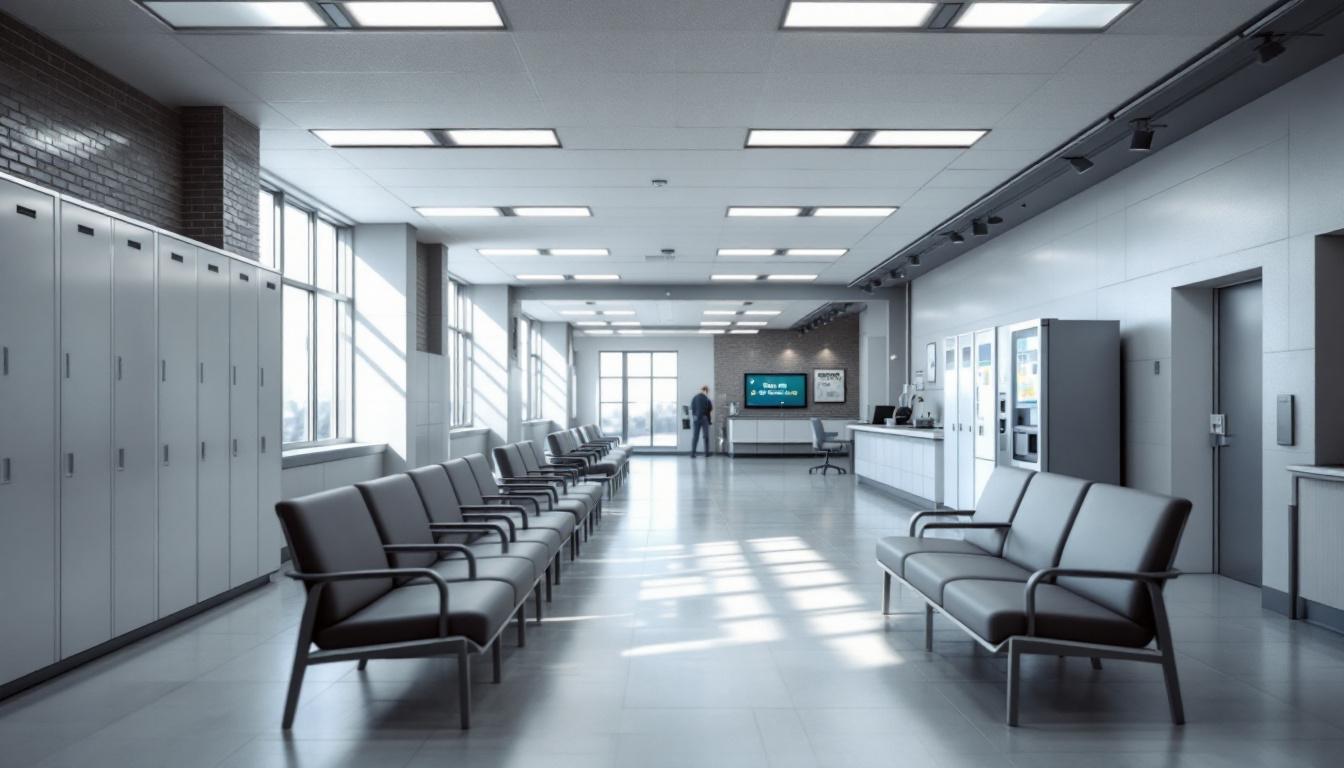
The sound of morning announcements echoes through housing units as individuals begin another day within the structured environment of Henderson County Detention Center. Today typically begins with early wake-up calls, followed by cell inspections and headcounts that consistently mark the transition from night to day. The daily routine generally revolves around scheduled meal times, programming activities, and designated periods for personal hygiene and correspondence, with staff maintaining regular supervision throughout all activities.
Living accommodations at the facility usually consist of shared cells or dormitory-style housing units, where individuals may store approved personal items in designated areas. The dining arrangements typically involve scheduled meal service in common areas, with individuals receiving meals that meet basic nutritional standards. Moreover, the facility generally provides access to commissary services, allowing individuals to purchase approved items such as snacks, hygiene products, and writing materials, though availability often depends on account balances maintained by family members or through facility work assignments.
Recreation and exercise opportunities may offer structured physical activity during designated time periods, while visitation policies typically allow for scheduled contact with family members and approved visitors. Whereas in-person visits often follow specific scheduling procedures, communication options usually include monitored telephone calls and correspondence privileges. Work assignments within the facility generally provide individuals with opportunities to earn modest wages while contributing to daily operations, and structured programming schedules may include educational sessions, substance abuse counseling, or other rehabilitative activities designed to support personal development during their time at the facility.
Ready to Connect?
Start communicating with your loved one today
Search for an Inmate
